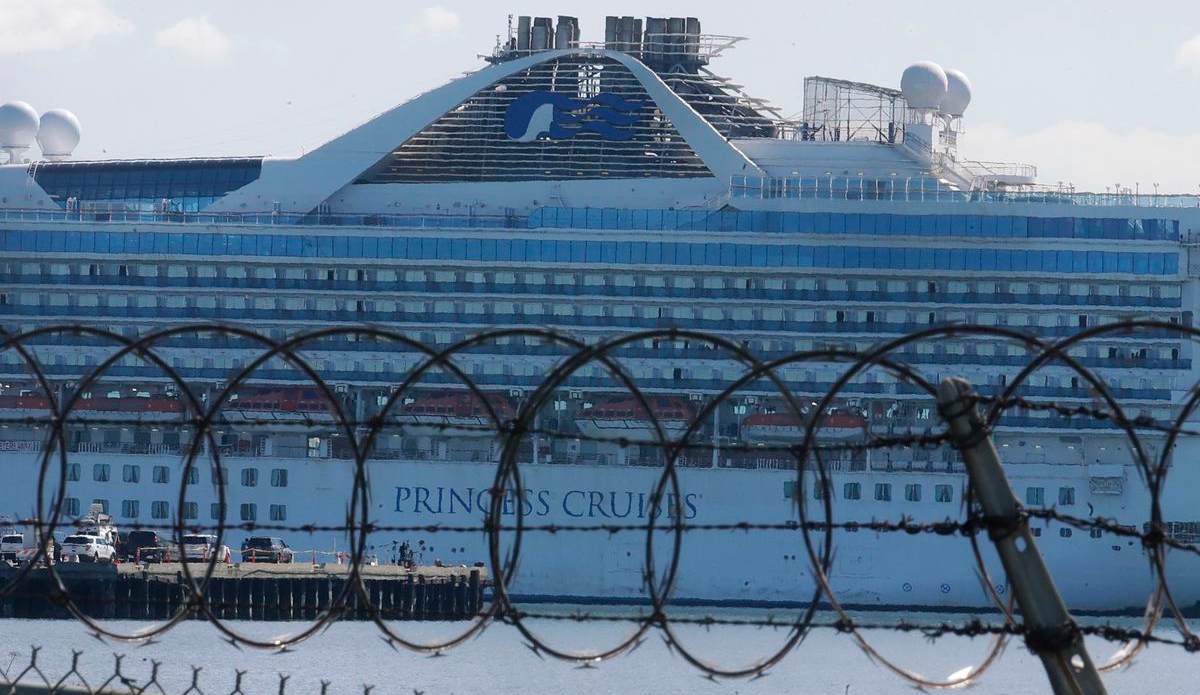
Coronavirus: people on cruise ships should be treated humanely
On board they get sicker; on shore they are stigmatized
Grand Princess/ AP Photo / Jeff Chiu
More than 50 cruise lines are suspending operations to and from US ports for 30 days because of the coronavirus pandemic, says the cruise line trade association. The cruise industry supports more than 421,000 jobs in the US and annually contributes nearly US$53 billion to the economy.
Two bioethicists have called for the passengers and crew of cruise ship to be treated ethically. The Grand Princess had to sail off Oakland, California, for several days after 21 people on board tested positive. Writing in the blog of the American Journal of Bioethics, Charlene and Lydia Dugdale pointed out that “the ship certainly met with resistance in port and the governmental response further muddied the waters, leaving thousands of individuals anxiously floating miles from American soil, without answers.”
President Trump insisted that all 3500 passengers and crew members—many of whom were American citizens—remain on the ship for the sole purpose of keeping coronavirus numbers down. The Centers for Disease Control & Prevention (CDC) preferred that the boat’s occupants disembark. But the President disagreed, stating, “I’d rather have the people stay. … I would rather – because I like the numbers being where they are. I don’t need to have the numbers double because of one ship that wasn’t our fault.” We must never jeopardize the well-being of others in order to manipulate statistics.
Isolation rhetoric leads to further stigmatization. Public attitudes toward those on board were hostile. People in Oakland did not want the cruise ship docking on their soil. Reflecting on the social media animosity, one passenger on the Grand Princess said, “It just makes me angry that people are putting a label on us, we’re human beings, we want to come home. We’re not an infestation that’s coming to their city.” Sound ethical policy regarding cruise ship quarantines will help mitigate such othering …
What’s more, it is morally reprehensible to detain healthy, uninfected individuals on a ship in close proximity to those with coronavirus—risk of infection goes up. The CDC acknowledges this chance, noting, “COVID-19 appears to spread more easily between people in close quarters aboard ships.” If we are serious about thwarting virus spread, the priority must be to protect uninfected individuals from exposure while providing the sick with necessary medical care…
The CDC, together with the executive and legislative branches of government, need to adopt policies for the ethical treatment of cruise ship passengers and crew that prioritize care of the critically-ill, regardless of nationality and ability to pay. Policies must seek to prevent the spread of disease by safeguarding the health of the uninfected. Most importantly, they must refuse the leveraging of human life for political ends.
We have thankfully moved past an era when it was permissible to cast the sick overboard in order to save the rest. Let’s ensure through the crafting of sound policy that we treat our fellow sojourners not as means to an end but as ends unto themselves.
Michael Cook is editor of BioEdge
Creative commons
https://www.bioedge.org/images/2008images/FB_princess.jpg
coronavirus
stigmatization
- How long can you put off seeing the doctor because of lockdowns? - December 3, 2021
- House of Lords debates assisted suicide—again - October 28, 2021
- Spanish government tries to restrict conscientious objection - October 28, 2021
